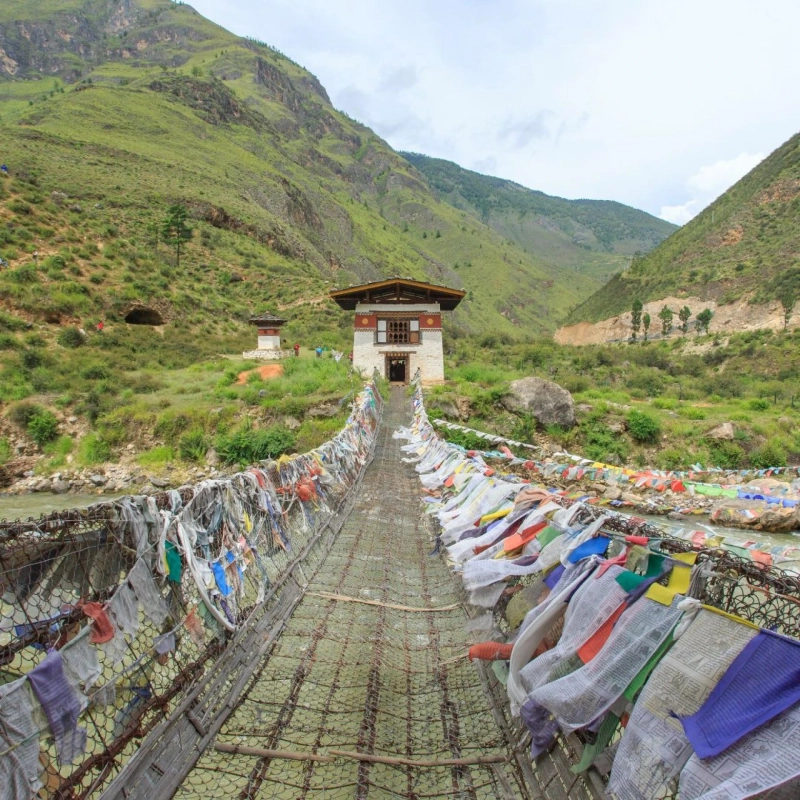Bhutan is a unique and enchanting destination nestled in the eastern Himalayas. With its stunning landscapes, rich cultural heritage, and a commitment to preserving its natural beauty, Bhutan offers an unforgettable travel experience. In this blog post, we'll provide all the essential information you need to plan and enjoy a tour to Bhutan.
Visa and Permits
Before embarking on your Bhutan journey, you need to obtain a visa and permits. Unlike most countries, Bhutan doesn't have a traditional visa system. Instead, you must book your trip through a registered Bhutanese tour operator, who will arrange the necessary permits for you. The process is seamless, and your tour operator will handle all the paperwork, making it a hassle-free experience.
When to VisitBhutan is a year-round destination, but the best time to visit depends on your preferences. Spring (March to May) and autumn (September to November) are considered the peak seasons, offering pleasant weather and clear skies for stunning mountain views. If you prefer fewer tourists and don't mind cooler temperatures, consider visiting during the shoulder seasons of summer (June to August) or winter (December to February).
Currency and Money MattersThe official currency of Bhutan is the Bhutanese Ngultrum (BTN). However, the Indian Rupee (INR) is widely accepted and can be used interchangeably with the Ngultrum. It's advisable to carry both currencies, as credit card facilities are limited, especially in rural areas. ATMs are available in major towns and cities.
LanguageThe official language of Bhutan is Dzongkha. English is widely spoken, especially in tourist areas, so you won't have significant language barriers.
Cultural EtiquetteBhutan is deeply rooted in its culture and traditions. It's essential to be respectful and adhere to cultural etiquette. When visiting dzongs (fortress-monasteries) and religious sites, dress modestly, remove your shoes, and follow any specific guidelines provided by your guide. Taking photos of people or religious ceremonies without permission is considered impolite.
Must-Visit DestinationsBhutan is a land of picturesque valleys and ancient monasteries. Here are some of the must-visit destinations:
Thimphu: The capital city is a blend of tradition and modernity. Visit the Tashichho Dzong, the National Memorial Chorten, and explore the vibrant local markets.Paro: Home to Bhutan's only international airport, Paro is a charming town. Don't miss the iconic Tiger's Nest Monastery (Taktsang Lhakhang) perched on a cliff.Punakha: This serene valley is known for its stunning Punakha Dzong and the fertility temple, Chimi Lhakhang.Bumthang Valley: Known as the spiritual heart of Bhutan, Bumthang is dotted with ancient monasteries and temples.Phobjikha Valley: A winter haven for the endangered black-necked cranes, this valley is breathtakingly beautiful. Trekking OpportunitiesBhutan offers a variety of trekking experiences, from gentle day hikes to challenging multi-day treks. The Snowman Trek is one of the most famous and challenging treks in the world, while shorter treks like the Druk Path Trek offer fantastic vistas and insight into the local culture.
Food and CuisineBhutanese cuisine is unique and flavorful, known for its use of chilies and cheese. Try dishes like Ema Datshi (chili and cheese stew) and momo (dumplings). Don't forget to enjoy a traditional Bhutanese meal in a local farmhouse to experience the culture firsthand.
Festivals and EventsBhutan is famous for its colorful and vibrant festivals, known as Tshechus. These festivals are celebrated with mask dances, traditional music, and a sense of joy. If your travel dates align with a Tshechu, it's an incredible opportunity to witness Bhutanese culture at its best.
AccommodationBhutan offers a range of accommodation options, from luxury resorts to comfortable guesthouses. Thimphu and Paro have several international-standard hotels, while in more remote areas, you'll find cozy lodges and guesthouses. Book your accommodations well in advance, especially during the peak tourist seasons.
TransportationGetting around Bhutan is mainly done by road. Roads can be winding and mountainous, so travel times can be longer than expected. Hiring a local driver and guide is common, as they are experienced in navigating the terrain and ensuring a smooth journey. Domestic flights are also available for certain routes.
Experience Gross National Happiness (GNH)Bhutan is renowned for its unique approach to measuring progress through Gross National Happiness (GNH) rather than Gross Domestic Product (GDP). Embrace this philosophy during your visit by engaging with the local people, learning about their way of life, and appreciating the stunning natural surroundings.
Respect the EnvironmentBhutan takes environmental conservation seriously, and you should too. Refrain from littering, respect wildlife, and follow the "Leave No Trace" principles. The country's pristine natural beauty is something to be preserved and cherished.
Plan AheadTo make the most of your trip to Bhutan, plan ahead. Research the places you want to visit, activities you want to experience, and ensure you have adequate time for acclimatization, as many areas are at high altitudes.
A journey to Bhutan is once-in-a-lifetime experience that promises breathtaking scenery, rich culture, and a deep sense of serenity. By considering the essential information provided here, you can ensure a smooth and enjoyable trip to this captivating destination. Whether you're exploring ancient monasteries, trekking through pristine landscapes, or immersing yourself in local culture, Bhutan offers an enriching experience that will stay with you long after you return home.



